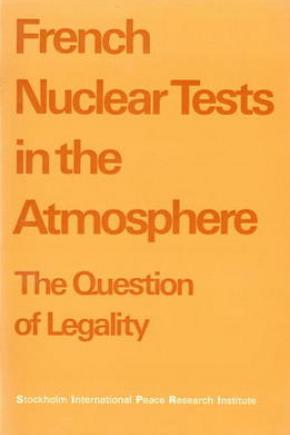French Nuclear Tests in the Atmosphere: The Question of Legality
In 1973, 10 years after the signing of the Partial Test Ban Treaty, the protests against nuclear-weapon tests in the atmosphere were particularly vigorous and assumed large proportions. The explosions carried out in the Pacific region by France, one of the countries which refused to join the treaty, were found most objectionable. The legality of the French tests was challenged in the International Court of Justice.
The purpose of this report is to give a concise review of the arguments put forward by the parties to the dispute, and to discuss the main legal problems involved. Arms control implications of the possible outcome of the litigation are also considered.
I. Subject of the dispute
II. The French nuclear build-up
III. The right to test
IV. Reaction of world opinion
V. Inviolability of territorial sovereignty
VI. Protection of the environment
VII. Freedom of the high seas
VIII. Prohibition under jus cogens
IX. Conclusions
Appendix A. French nuclear explosions, as of 31 December 1973
Appendix B. Geographical situation of the French Pacific Tests Centre
Appendix C. Prohibited and dangerous zones in the French Pacific Tests Centre
Appendix D. Chinese nuclear explosions, as of 31 December 1973
Appendix E. Announced and presumed nuclear explosions, 1945–1973

